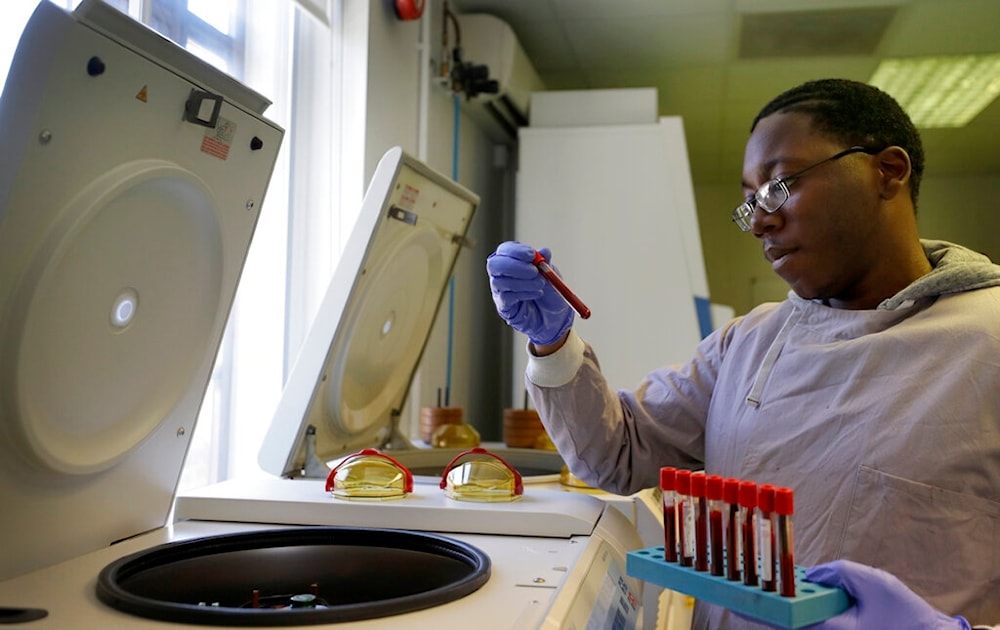New test predicts breast cancer recurrence years ahead of scans
The new test uses whole genome sequencing to scan for 1,800 mutations, significantly boosting its sensitivity.
-

Leon McFarlane a research technician uses a centrifuge on blood samples from volunteers in the laboratory at Imperial College in London, Thursday, July 30, 2020. (AP)
In a groundbreaking development poised to transform breast cancer management, a new blood test has been shown to predict the risk of breast cancer returning up to three years before any tumors are detectable on scans. This "incredibly exciting" breakthrough promises to significantly enhance survival rates by enabling earlier, more targeted treatment.
Each year, over 2 million women worldwide are diagnosed with breast cancer, the most common form of cancer in women. Despite significant advancements in treatment, recurrence remains a major challenge, often presenting at a more advanced and harder-to-treat stage.
The promising new test unveiled at the American Society of Clinical Oncology annual meeting in Chicago employs a personalized liquid biopsy approach. This test detects trace amounts of cancer DNA circulating in the bloodstream, offering a very early warning sign of potential relapse. The results from the trial, conducted by researchers at the Breast Cancer Now Toby Robins research center in London, indicate that this test could help identify which women need preventive therapy and which can be spared unnecessary treatment.
Read more: Immunotherapy treatment "cures" 2 cancer patients
"The sensitivity of this test is remarkable, accurately predicting the risk of cancer returning months, or even years, before conventional signs and symptoms appear," said Simon Vincent, director of research at Breast Cancer Now, which co-funded the trial.
In the trial, researchers analyzed blood samples from 78 patients with various types of breast cancer. The test successfully identified all 11 patients who experienced a relapse within the five-year study period, with an average relapse time of 15 months and the longest at 41 months. Importantly, all 60 women whose tests did not detect circulating tumor DNA (ctDNA) remained relapse-free, indicating no false negatives.
"Breast cancer cells can linger in the body post-treatment in numbers too small to be detected by scans," explained Isaac Garcia-Murillas, the study’s lead author at the Institute of Cancer Research (ICR) in London. "These cells can cause a recurrence years after initial treatment, but our test can detect these cells at a very early stage."
Traditional ctDNA tests use whole exome sequencing, searching for 16 to 50 mutations. The new test, however, uses whole genome sequencing to scan for 1,800 mutations, significantly boosting its sensitivity.
Read more: Hopes for cancer cure as personal mRNA vaccine for melanoma trialled
Three patients had ctDNA detected initially, but further testing showed it had vanished, potentially due to early intervention. The ICR has not yet provided complete data for the remaining four patients.
"This innovation represents a significant leap in cancer diagnostics," said Prof. Kristian Helin, ICR’s chief executive. "Detecting breast cancer recurrence early, when it is still treatable, greatly improves the chances of survival. Advances like this, which detect cancer cells and DNA with such sensitivity, are transforming how we diagnose and treat cancer."

 3 Min Read
3 Min Read









